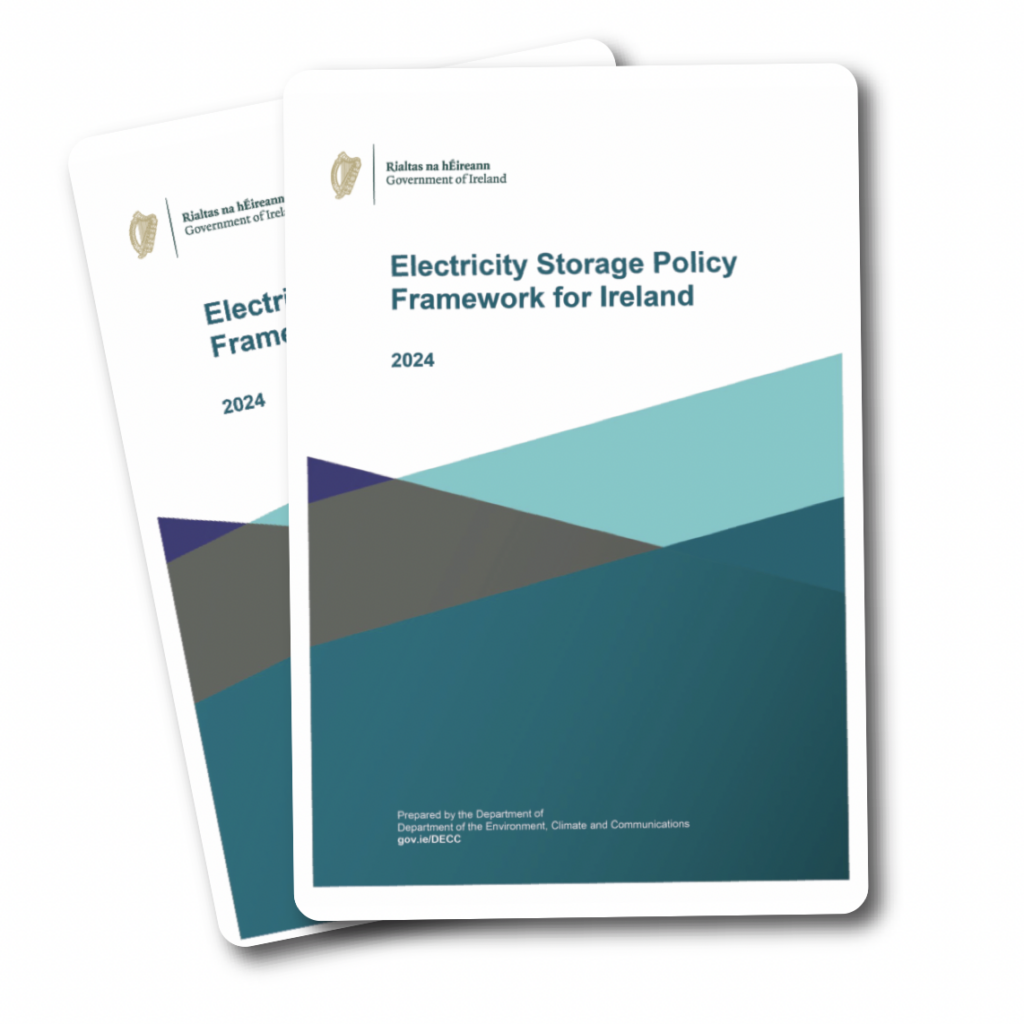
2030 northern target to be met by two renewable electricity support auctions
4th October 2024
Heat bill general scheme to be drafted by 2025
4th October 2024Energy storage systems and the 2030 Climate Action Plan targets

The publication of the Electricity Storage Policy Framework sends a clear and positive signal to potential developers and funders that Ireland intends to be a business-friendly market for energy storage, writes Seanna Mulrean, Consultant and Head of Energy and Natural Resources at LK Shields.
In order to realise its net-zero carbon emissions objective and to secure Ireland’s future energy supply, the Government is committed to transitioning to an electricity-led system. Electricity storage will be an essential component of this system.
A policy framework was published by the Department of the Environment, Climate and Communications in July 2024 “to clarify the role of electricity storage systems (ESS) in Ireland’s climate objectives and energy transition”.
The Electricity Storage Policy Framework for Ireland
This is a strategic initiative aimed at transforming Ireland’s energy infrastructure.
As the use of renewable energy sources increases, so too does the challenge of managing the intermittent nature of these energy sources and ensuring that a stable energy infrastructure is in place.
Electricity storage systems (ESS) are a means of addressing this issue by capturing excess energy during peak production periods and releasing it during periods of peak demand.
The policy outlines a comprehensive approach to the development of ESS in Ireland. This framework seeks to enhance regulatory and market structures, provides targeted incentives and sets technical standards to support the deployment of these storage solutions. In doing so, Ireland is taking a significant step towards achieving its climate goals and enhancing its electricity supply across the country.
Ten policy actions
The policy identifies the Government’s 10 ‘policy actions’ which are designed to support and regulate the integration of ESS into Ireland’s energy system.
Support access to the wholesale electricity markets, arbitrage and revenue stacking for electricity storage systems.
This action focuses on enhancing the ability of ESS operators to participate effectively in wholesale electricity markets. By supporting access to these markets, the framework aims to enable ESS operators to engage in arbitrage, i.e., buying electricity when prices are low and selling when prices are high.
Additionally, the policy promotes revenue stacking, which means that operators can earn multiple revenue streams by providing various services in addition to energy trading. This multifaceted approach encourages greater deployment of storage technologies by making them more financially attractive and integrated in the broader energy market.
Support the immediate procurement of demand flexibility products and of (long duration) electricity storage to meet specific network needs, in the distribution and transmission systems respectively.
This action is designed to address immediate network requirements by facilitating the procurement of demand flexibility products and long duration electricity storage. These storage solutions can provide extended energy supply during periods of higher demand or low renewable generation. This way the grid can effectively manage fluctuations and maintain a steady flow of electricity.
Funding
Policy actions seven to 10 focus on the creation of a robust funding regime to support the development and implementation of ESS technologies.
Action 7 outlines how the Department will engage an external consultant who will determine the optimum quantity of ESS required in the 2030 to 2040 timeframe.
Actions 8 and 9 focus on initiating financial consultations and, if required, a market framework, to ensure that a wide range of projects can access the necessary capital and therefore reach the optimum quantity of ESS outlined in action 7.
Action 10 will involve engagement with the regulatory authority to ensure the incorporation of sufficient ESS as required throughout the grid. Collectively, these actions aim to provide a stable and supportive financial environment that accelerates the growth of storage infrastructure throughout Ireland.
Variety
The policy also recognises the need for ‘a balanced portfolio of technologies’ rather than just relying on one electricity storage technology to meet our energy requirements. This is reflected in Action 2 through the creation of a ‘sandbox’ project which is an environment in which technologies can be tested in isolation.
This will support the system operators, EirGrid and ESB, in identifying new technology capable of being implemented into the grid network.
Challenges
The policy acknowledges the challenges and considerations that must be addressed for successful implementation. Most notable is the operation of the network grid when it comes to dispatchable and non-dispatchable generation.
Dispatchable generation refers to conventional thermal generation such as gas turbines, which is predictable and can be controlled to meet system demands.
Non-dispatchable refers to renewable energy sources such as wind and solar and has a more variable output.
For the grid to operate with increased levels of renewable energy, an increased level of specialist services is required to ensure grid stability, referred to as system services. As can be seen in actions 7 through 10, the Government also recognises the ongoing need to monitor any funding gaps and market access issues that may arise.
Assessment
The policy is a practical initiative in Ireland’s energy strategy and is designed to advance the integration of ESS into the grid network. By addressing key areas such as market access, technical standards, and funding mechanisms, the Policy aims to provide a realistic framework for achieving Ireland’s renewable energy targets.
It is already evident that there has been an increase in battery energy storage systems (BESS) and other storage systems being co-located with renewable energy generation such as wind and solar to facilitate storage when prices and conditions allow, such energy to be dispatched at times of higher demand.
For further information please contact Seanna Mulrean (smulrean@lkshields.ie), Consultant and Head of Energy and Natural Resources at LK Shields.



